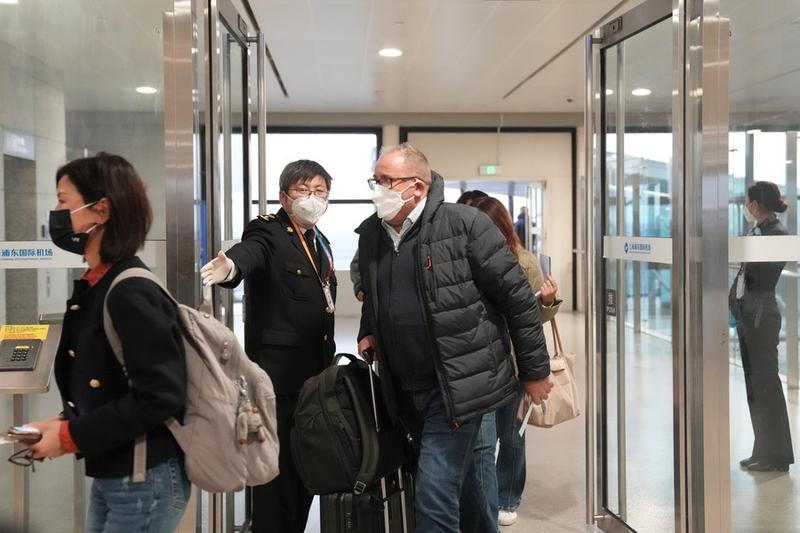
BEIJING: China's visa authorities abroad will resume issuance of all categories of visas to foreigners starting on Wednesday, according to a statement from the Chinese Foreign Ministry on Tuesday.
The decision is made to further facilitate cross-border travel, the statement said.
In addition to new travel documents being reviewed and approved, visas issued before March 28, 2020, that are still valid will once again allow entry to China, according to a notice posted by the Chinse embassy in Washington on Monday.
The updated policy will also allow for the resumption of visa-free travel for those arriving in cruise ships to Shanghai, as well as for certain tourist groups from Hong Kong, Macau and countries within the Asean regional grouping, the notice said.
The move marks the latest step towards reopening China to the outside world, as Beijing gradually breaks with the strict zero-Covid strategy that defined its pandemic response until a few months ago.
China received 65.7 million international visitors in 2019, according to data from the United Nations' World Tourism Organization (WTO), before the Covid-19 pandemic led the country to seal itself off from the rest of the world.
While most other countries began fully reopening their economies and welcoming international travellers earlier, China only began emerging from its strict Covid containment policies in late 2022, after rare demonstrations against President Xi Jinping's signature zero-Covid strategy broke out across the country.
Those protests in late November expanded into calls for more political freedoms, with some even calling for Xi to resign, turning into the most widespread opposition to communist rule since the 1989 democracy uprising that the military crushed.
- Reversal -
In early December, Chinese authorities effectively ended the regime of mass testing, lockdowns and long quarantines -- but the abrupt reversal led to a sudden spike in Covid cases.
Beijing announced in late December that inbound travellers to the country beginning January 8 would no longer need to quarantine, but kept in place visa restrictions on foreigners.
At the time, Beijing said it would "continue to adjust its visa policy for foreigners visiting China in a scientific and dynamic manner in accordance with... the epidemic situation."
It also then resumed issuing Chinese passports for "tourism" or "overseas visits of friends."
With cases surging in China around the New Year, several countries -- notably Japan and South Korea -- reimposed restrictions on Chinese visitors, provoking a tit-for-tat as Beijing issued its own limitations.
As cases waned in China, both sides subsequently eased those restrictions.
The announcement that China will resume issuing visas to foreigners comes as the country's rubber-stamp parliament wrapped up an important session in Beijing, during which Xi was confirmed to a third term as president and his close ally Li Qiang became premier.
Li on Monday admitted that achieving the country's economic growth target of "around 5%" would be "no easy task."
China posted just 3% growth last year, missing its stated target of around 5.5% by a wide margin as the economy strained under the twin impact of strict Covid policies and a property crisis.
